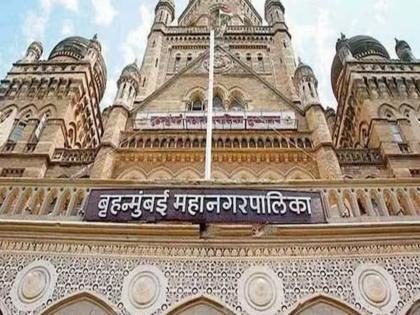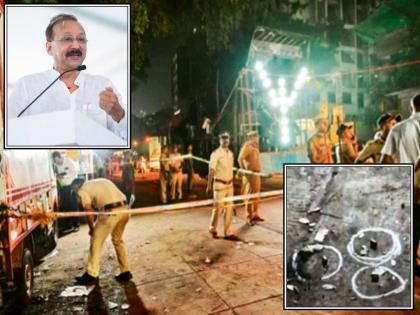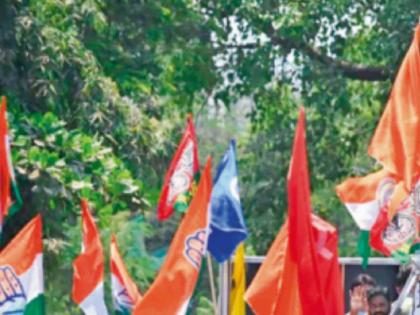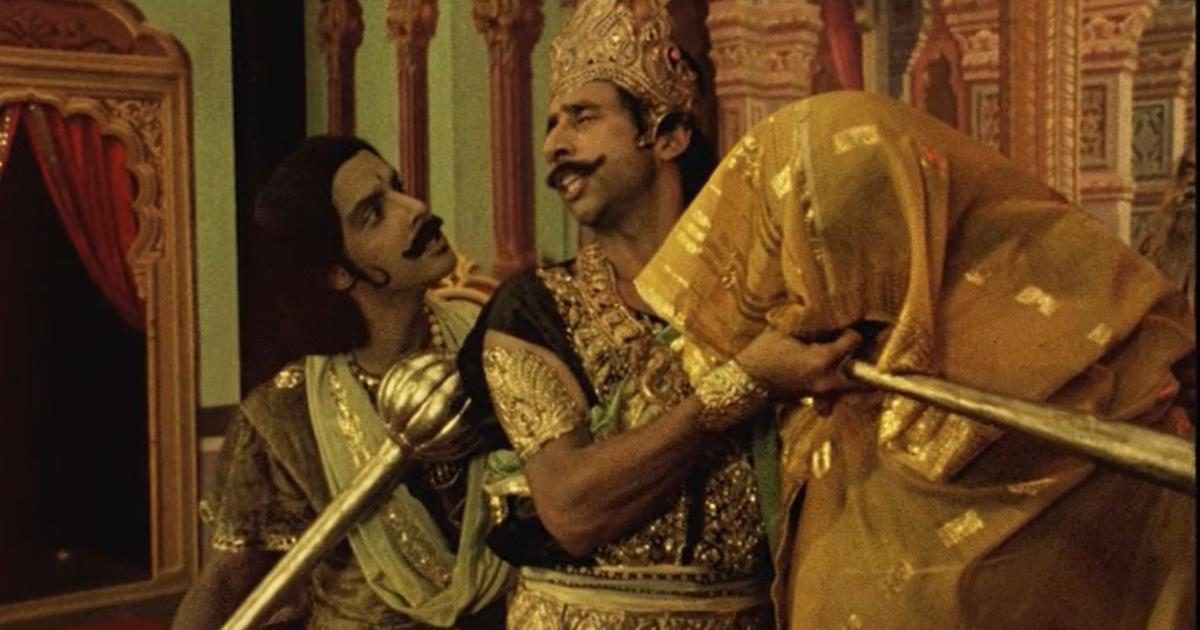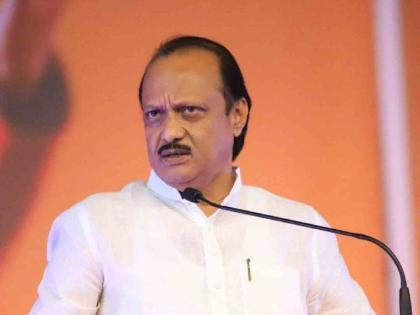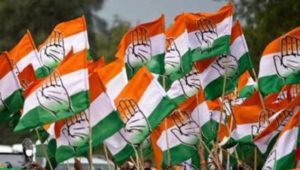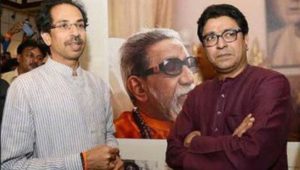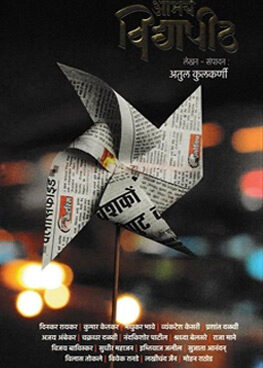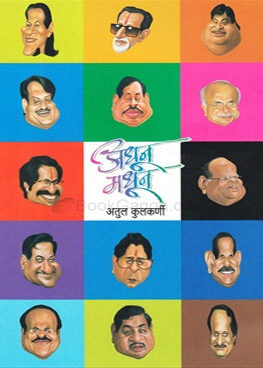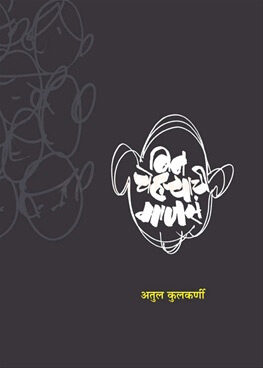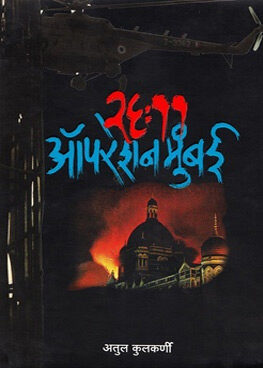बायोडेटा
अबाऊट अतुल कुलकर्णी
1986 साली अतुल कुलकर्णी यांनी लातूर येथे लोकमतमधून पत्रकारिता सुरु केली. तेव्हापासून त्यांनी औरंगाबाद, अहमदनगर, सोलापूर, पंढरपूर, कोल्हापूर आणि मुंबई अशा अनेक ठिकाणी काम केले. पत्रकारिता करताना सामाजिक विषय आणि व्यवस्थेवर प्रहार करणारे लेखन त्यांनी सातत्याने केले. त्यांनी लिहीलेल्या वेगवेगळ्या नऊ वृत्तमालिकांना मुंबई उच्च न्यायालय आणि औरंगाबाद खंडपीठाने पीआयएल (पब्लिक इंटरेस्ट लिटीगेशन) म्हणून दाखल करुन घेतले. एकाच पत्रकाराच्या एवढय़ा बातम्या पीआयएल होणो हे देशातले पहिलेच उदाहरण आहे. पा.वां. गाडगीळ लोकमत शोध पत्रकारिता, लोकमत उत्कृष्ट वार्ता पुरस्कार आणि समिक्षेसाठीचा सिताबाई भागवत पुरस्कार हे त्यांना प्रत्येकी दोनवेळा मिळाले आहेत. महिलांना समाजात चांगले स्थान मिळाले पाहिजे हा विषय घेऊन लिहीलेल्या ‘जाता जाता’ या सदरास लाडली मिडीया जेंडर सेन्सेटीव्हीटी अॅवॉर्ड देखील मिळाले आहे.
जलसिंचनाच्या बाबतीत राज्यात चालू असलेला घोळ, आरटीओ कार्यालयातील सावळा गोंधळ, मटक्याचे राजकारण आणि त्यातून जोपासलेली गुन्हेगारी, म्हाडाच्या घरबांधणी विषयीचे राजकारण अशा विविध विषयावरील त्यांच्या वृत्तमालिका गाजल्या आहेत. तत्कालिन पंतप्रधान अटलबिहारी बाजपेयी यांच्या उपस्थितीत पाकिस्तानात झालेल्या सार्क कॉन्फरन्ससाठी त्यांची निवड झाली होती. पाकिस्तान दौ:यातील त्यांचे लिखाणही बातमीच्या पलिकडे जाऊन माणूस शोधणारे होते.
डॉ. शरदचंद्र चटोपाध्याय यांच्या ‘बडी दिदी’ या ¨हदी पुस्तकाचा मराठीतही त्यांनी ‘लुका’ यानावाने अनुवाद केला असून तो पुस्तकरुपाने प्रकाशित झालेला आहे. राजकीय नेते, त्यांचे राजकारण यावर खुमासदार शैलीत भाष्य करणारा ‘अधून-मधून’ हा स्तंभ त्यांनी लोकमतमध्ये लिहिला आहे. 26/11 ऑपरेशन मुंबई हे पुस्तक त्यांनी लिहीले. ज्याचे इंग्रजी व गुजराथी भाषेत अनुवाद झाले. ‘बिनचेह:याची माणसं’ हे पुस्तक ही त्यांनी लिहीले आहे. सध्या ते मुंबई लोकमत येथे संपादक या पदावर कार्यरत आहेत.
ABOUT THE AUTHOR
Atul Kulkarni’s entry into Journalism at Latur (Maharashtra-INDIA) dates back to 1986. Since then he has worked at many places including Aurangabad, Ahmadnagar, Solapur, Pandharpur, Kolhapur & Mumbai. While reporting his focus has always been on social issues and has always ruthlessly brought out & criticized maladies of the system. The Mumbai and Aurangabad High Court has converted Nine reports written by him on different subjects, into Public Interest Litigations. This is a solitary example in case of a Reporter. In another feat he has been honoured Twice with the ‘P.V. Gadgil Award for Investigative Journalism’; ‘Lokmat Award for Best Report’ & ‘Sitabai Bhagwat Award for Critics’. His article in the column ‘Jata Jata’ in Marathi focusing on elevation of social status of women won him the ‘Ladli Media Gender Sensitivity Award’.
News serial written by him on chaos in the Department Irrigation & Transport (Regional Transport Offices) of Govt. of Maharashtra; Politics of & in the illicit Matka business (Gambling) & crime harbored by it; Politics in the housing projects of Mhada have received galore of accolade. He was picked up for the team of Journalists that accompanied the then Prime Minister Atal Bihari Bajpai to the SARC Meet held in Pakistan. His dispatches from the venue of the Conference looked beyond the news & had an adoring human touch to it.
His translation work of the Hindi Book written by Dr Sharatchandra Chattopadhya in Marathi titled as ‘LUKA’ has also been published. Political satire regularly being written by him in ‘Lokmat Daily’ (All editions including Hindi) in the column ‘Adhun Madhun’ is also very widely read. At present, he is working as Editor ‘Lokmat’ Mumbai Edition.
अतुल कुलकर्णी
जन्म तारीख ७ जुलै १९६८.
१९८६ पासून लातूर येथे लोकमतमधून पत्रकारितेची सुरुवात. नंतर औरंगाबाद, अहमदनगर, सोलापूर, पंढरपूर, कोल्हापूर अशा अनेक ठिकाणी काम. सध्या मुंबईत ब्युरो चिफ या पदावर कार्यरत. पत्रकारिता करताना सामाजिक विषय आणि व्यवस्थेवर प्रहार करणारे सातत्याने केलेले लेखन हे जमेची मोठी बाजू. विविध वृत्तमालिका लिहीत असताना सामान्य माणूस केंद्रबिंदू ठेवून केलेल्या लिखाणामुळे अनेक थांबलेले विषय मार्गी लागले.
गाजलेल्या विविध वृत्तमालिका व त्यांतून साध्य झालेला परिणाम
सहकार की स्वाहाकार.
या मालिकेचे पडसाद महाराष्ट्च्या राजकारणात आजही पहावयास मिळत आहेत. राज्य सहकारी बँकेतील अनियमितता आणि इतर अनेक विषयावर कधीही कोणीही लिहीले नव्हते. जे पहिल्यांदा लिहीले गेले. त्यानंतर विधानसभेत प्रचंड गदारोळ झाला. केंद्रसरकारने, रिझर्व्ह बँकेने राज्य सहकारी बँकेचे शिष्ठमंडळ बरखास्त करण्याची घोषणा केली. राज्याच्या इतिहासात पहिल्यांदा ही अशी कारवाई झालेली आहे.
सिंंचन कोणाचे?
राज्यात सिंंचनावरुन गेली अनेक वर्षे गदारोळ चालू आहे. आज सत्ताधाऱ्यांवर आरोप करणाऱ्या युतीच्या काळात देखील काय काय घडले याचा पर्दाफाश केला आणि डिसेंबर २०१२ मध्ये नागपूरला झालेल्या अधिवेनाचा रोखच बदलून गेला. केवळ आरोप करण्याने हा प्रश्न सुटणार नाही तर त्यासाठी राजकीय पक्षांनी भूमिका घ्यावी लागेल असे सांगत कोणकोणते पर्याय असू शकतात याचे अभ्यासपूर्ण विष्लेषण करणारी ‘आरोप नको, भूमिका घ्या’ अशी मालिका लिहीली.
जलसिंंचनाच्या बाबतीत राज्यात चालू असलेला घोळ.
या मालिकेनंतर तत्कालिन अर्थमंत्री जयंत पाटील यांनी जलसंपदा विभागाला दरवर्षी ७ हजार कोटीची तरतूद करण्याचे मान्य केले. त्यानुसार तरतूद करणे सुरु झाले. शिवाय राज्यपालांचे निर्देशही मराठी भाषेतून आले. सिंचनावर केलेले विपूल लेखन यातून वाचायला मिळेल.
आरटीओ कार्यालयातील सावळा गोंधळ.
या मालिकेला मुंबई उच्च न्यायालयाच्या सर्वोच्च न्यायमूर्तींनी पीआयएल म्हणून दाखल करुन घेतले. त्यात चौकशीचे आदेश दिले. व नंतर सरकारने यात दोषी असणाऱ्या ११ आरटीओंना निलंबित केले शिवाय ७ जणांविरुध्द विभागीय चौकशी सुरु केली आहे. यानंतर आरटीओ कार्यालयाच्या संगणीकरणाने वेग घेतला.
मटक्याचे राजकारण आणि त्यातून जोपासलेली गुन्हेगारी.
या मालिकेत मटका कधी सुरु झाला इथपासून ते त्यात राजकारण आणि गुन्हेगारी कशी आली इथपर्यंतचा प्रवास आहे. या मालिकेनंतर राज्यात पहिल्यांदा सलग दोन महिने मटका बंद झाला होता.
म्हाडाच्या घरबांधणी विषयीचे राजकारण.
या मालिकेनंतर सरकारने म्हाडासाठी रेग्यूलेटर नेमण्याची भूमिका जाहीर केली.
मल्टिप्लेक्सची मुजोरी.
या मालिकेनंतर मल्टिप्लेक्स मध्ये आता मराठी चित्रपट लागण्यात येणारे अडथळे थांबले आहेत. सरकारने त्यांची मल्टिप्लेक्ससाठीची चौकशी सुरु केली आहे.
राज्यातील आरोग्य विभागाने घातलेला घोळ.
एखाद्या वृत्तपत्रातून सलग दीड महिना वृत्तमालिका चालण्याचा विक्रम या मालिकेच्या नावावर जाईल. यामुळे राज्यातील आरोग्य यंत्रणा संपूर्णपणे ढवळून निघाली. शासनाने जीवनदायी योजनेची पुर्नबांधणी केली. १४०० डॉक्टरांच्या जागा भरल्या. अजूनही या मालिकेचे पडसाद चालूच आहेत. यात राज्याच्या वैद्यकीय संचालकांना सक्तीच्या रजेवर जावे लागले.
धारावी पुर्नविकास प्रकल्पात होत असलेला विलंब.
मालिकेनंतर धारावीच्या संदर्भातील भूमिका मुख्यमंत्र्यांनी स्पष्ट केली. आता सरकारमध्ये त्यांच्या गतीने काम चालू आहे.
एकाच पत्रकाराच्या नऊ पीआयएल
एखाद्या पत्रकाराने बातमी लिहीली आणि त्याची कोणी दखल घेतली तर सगळ्यात जास्त आनंद त्या पत्रकाराला होतो. अतुल कुलकर्णी यांनी लिहीलेल्या नऊ वृत्तमालिकांना उच्च न्यायालयाने पीआयएल (पब्लिक इंटरेस्ट लिटीगेशन) म्हणून दाखल करुन घेतले. एकाच पत्रकाराच्या बाबतीतील हे असे पहिलेच उदाहरण. या मालिकेतील सगळे विषय सामान्य माणूस केंद्रस्थानी ठेवून लिहीलेले आहेत.
विविध पुरस्कार
- महाराष्ट् शासनाचा दर्पणकार बाळशास्त्री जांभेकर राज्यस्तरीय पुरस्कार.
- महाराष्ट्र शासनाचा आचार्य अत्रे उत्कृष्ट पत्रकारिता पुरस्कार.
- लोकमततर्फे दिला जाणारा पा.वां. गाडगीळ लोकमत शोध पत्रकारिता. (दोन वेळा)
- लोकमततर्फे दिला जाणारा उत्कृष्ट वार्ता पुरस्कार. (तीन वेळा)
- बालकुमार साहित्य संमेलनाचा बाल साहित्याच्या समिक्षेसाठीचा सिताबाई भागवत पुरस्कार. (दोन वेळा)
- महिलांना समाजात चांगले स्थान मिळाले पाहिजे हा विषय घेऊन लिहीलेल्या ‘जाता जाता’ या सदरास लाडली मिडीया जेंडर सेन्सेटीव्हीटी अॅवॉर्ड.
- २६/११ ऑपरेशन मुंबई या पुस्तकाला महाराष्ट्र संपादक परिषदेचा पुरस्कार.
- पुण्याचा वरुणराज भिडे पत्रकारिता पुरस्कार.
- अहमदपूर पत्रकार संघातर्फे पत्रकारिता राज्यस्तरीय पुरस्कार.
ठळक नोंदी
- तत्कालिन पंतप्रधान अटलबिहारी बाजपेयी यांच्या उपस्थितीत पाकिस्तानात झालेल्या सार्क कॉन्फरन्ससाठी निवड. पाकिस्तान दौऱ्यातील लिखाण बातमीच्या पलिकडे जाऊन माणूस शोधणारे.
- जय महाराष्ट् या दूरदर्शनवरील कार्यक्रमात अनेक मान्यवरांच्या थेट मुलाखती. शिवाय जे.पी. डांगे, रत्नाकर गायकवाड आणि जयंकुमार बांठिया या तीनही तत्कालिन मुख्य सचिवांच्या मुलखती.
- डॉ. शरदचंद्र चटोपाध्याय यांच्या ‘बडी दिदी’ या हिंदी पुस्तकाचा मराठीतही ‘लुका’ यानावाने अनुवाद.
- औरंगाबादेत परिवर्तन या संस्थेचे सचिव म्हणून १५ वर्षाहून अधिक काळ कार्यरत. या संस्थेने नलिनी पंडीत यांच्या अध्यक्षतेखालील विचारवेध संमेलनही भरवले होते.
- एबीपी माझा, न्यूज १८ लोकमत, झी २४ तास, एनडीटीव्ही हिंदी या मालिकांवर राजकीय विश्लेषक म्हणून चर्चेत सहभाग.
- लोकमत यू ट्यूब चॅनलवर विविध विषयांवर विश्लेषणात्मक कार्यक्रम.
The day we visited Lokmat Senior Assistant Editor Atul Kulkarni’s home in Mumbai, a post he had written on Facebook in the morning about a popular Marathi TV show was going viral, its likes and shares increasing by the thousands each hour. As we sat there in his living room, and discussing issues ranging from the entertainment industry to politics to national security, I was struck with the thought that journalists like Atul are a fitting response to those who complain that regional print media is failing to keep up with the times and headed down a path of obscurity. Atul not only has a large following on social media, but his articles and opinion pieces in the daily Lokmat are on issues dear to the people and on challenges they face in their day to day lives across the state of Maharashtra. They have had a real impact on the ground, be it in the form of PILs in the High Court or directives issued by the government for better implementation of public schemes. He has also written multiple books; the one narrating his first-hand experience while covering the 26/11 attacks in Mumbai won national acclaim. At the same time, he has not failed to be well apprised of international undercurrents. This boy from Latur has indeed come a long way.
Born to teacher parents Khanderao and Vanamala, Atul completed his entire education in Latur itself. While studying BCom at Basweswar Mahavidyalaya, he wrote a piece on his experience of traveling on a narrow gauge train to Pandharpur. It was published in the local daily Dainik Bhukampa and received a good response from the people. It was read by Jayprakash Dagde who invited him to write for Lokmat. However, his parents were not in favour of him joining the field, and did not like his name being published in the paper. Thus, Atul started writing under the pen name ‘Atul Da’.
Though not yet a formal employee, he began to visit the Lokmat office regularly. He became an integral part of it, even helping carry newspapers on his back with other journalists and distributors through the floodwaters of the Renapur River that the tempos could not cross. He would in his own way, try to provide news that he came across. One of his first encounters with the power of journalism happened will still in college. His librarian mentioned that his father, a freedom fighter, was not getting his pension. Atul published the news that was read by the District Collector. Atul visited him and ensured that the matter was resolved. When the grateful old man joined his hands before him in gratitude, Atul realized the significance of journalism. He made up his mind to be a journalist and applied for a job at Lokmat.
Just a day after he had applied, Rajendra Darda was visiting. He saw the application letter and was surprised at the similarity in handwriting to Dagde. Atul’s name also cropped up in a conversation with renowned physician Dr RS Sarda. Curious, Darda called him to the office and after a short interview offered him a job as Sub-Editor. Atul was initially taken aback at being offered such a big post, but Darda explained that he would be a trainee. In 1988, on completing his graduation, Atul formally joined Lokmat’s Aurangabad edition.
He had been appointed without undergoing the process of exam and interview, nor did he have an educational background in journalism. He admits that this proved challenging initially. One of the first assignments he was given was to set paper which in those days was done using RC paper and was a very complicated process. With his limited knowledge, he set only news from his hometown Latur! But he was determined to learn. He was soon asked to write the Yuva Spandan column that he had himself keenly followed while in college when it was written by senior journalist Yamaji Malkar. He poured in all his energies into making it an even bigger success, which was evidenced by the large number of letters he received. Lokmat decided to organize a youth festival for the column. It saw big attendance by college students, principals, parents and became a popular event. Atul was then sent to active reporting as a reward for his hard work. But there was a small hurdle. Atul did not have any means of transport to reach the nooks and crannies from where real reporting is done. In his typical straightforward style, he expressed his problem to Rajendra Darda who told him to get a quote for a bike, go to the Accounts department and get the necessary funds. Thus, the paper was always very supportive since the formative stags of Atul’s career.
The next few years were a whirlwind. Atul threw himself head first into news reporting. One of the most bone-chilling experiences that he remembers from that time is reporting on the Aurangabad riots. He roamed the deserted streets on his scooter. Once he almost came face to face with a violent mob, but the police on seeing his ID sent him on a different route and he was just saved from the stone pelting and blood shedding. He reported on a wide range of topics and many of his reports were converted into PILs. He wrote an article on encroachments on the green belt in Aurangabad. The High Court issued directions to CIDCO to clear footpaths and government land. Atul was seen as a villain by those affected, but the then ACP Sudhir Dabhade extended him full support. Even Rajendra Darda did not object despite being an incumbent Minister.
Giving a voice to the unrepresented was also an important concern for Atul. Two such reports are dear to Atul. The first one was regarding the trouble faced by hearing and speech impaired students to get disability certificates from government hospitals due to unreasonable demands by doctors. In the ensuing PIL, the HC laid down guidelines applicable across the state and a formal system was initiated. In 1993, Atul wrote a piece on the rise in prices of school textbooks accompanied by detailed comparative statistics. An advocate filed a PIL in that regard and the HC ordered free books to be distributed till standard 4th. Subsequently, this was increased to standard 8th at the initiative of then CM Vilasrao Deshmukh and Education Minister Ramkrishna More. Later this was emulated by the Union Government’s Sarva Shiksha Abhiyaan scheme. Thus, one piece of news sent the ball rolling for a decision that impacted students across the entire country. Atul is the only journalist who has ten (10) PILs of his news series.
He thereafter rose to the position of Bureau Chief for Aurangabad. He also initiated a dedicated supplement termed ‘Hello Aurangabad’ which was replicated in all editions of Lokmat. Atul became a launching expert of sorts, going wherever a new edition of Lokmat or the Hello supplement had to be launched. These included not only those editions within the state but also the Delhi and Goa editions. Then wishing to be at the heart of all events in the capital of the state, Atul expressed his desire to go to Mumbai.
Like most people who move to the metropolis, Atul too faced the challenge of finding suitable accommodation. For five years he stayed at the Akashwani Aamdar Nivas aided by then MLA Kripa Shankar. He then moved to Manora Aamdar Nivas with the help of MLAs Ram Kadam and Krishna Hegde. What he finds commendable is that, it was these places that provided him the opportunity to find his firm footing in the big city, but these individuals never demanded any sort of quid pro quo by publishing news in their favor, nor did they ask him to leave. By this time Kulkari was married. He met his wife Deepa through litterateur RR Borade’s daughter Prerna. Love blossomed and it was actress Sukanya Atul who broke the news to his family. He and his wife made a firm decision that they will divide wedding expenses equally among themselves without burdening their families, which in that day and age was a novel initiative. After he moved to Mumbai, his wife and daughter Gargee stayed back in Aurangabad and later moved to Pune till his career could stabilize.
Atul continued his fearless, people-centric journalism in Mumbai as well. Rather, he acquired a bigger canvas and began to investigate corruption and maladministration to bring probity in governance. One of the earliest series he did was on irregularities in the functioning of the state cooperative bank. The public sector regulator NABARD had published a thousand page technical report on it in English. Atul analyzed it and published a series of articles ceaselessly for six days regarding it. It is worth mentioning that Rajendra Darda was then a Minister in the state government and faced a lot of pressure. Yet both Rajendra and Vijay Darda would read the article on the same day that it was publicly published and never made any attempt to influence the series. The paper duly published the government’s justifications, and later explained how it was wrong. They also wrote letters to the Reserve Bank of India. Such was the impact of the series that within 3 weeks, the Board of Directors was suspended. The matter is subjudice and the bank continues to be run by administrators.
Other scams he exposed at the higher echelons of government included his series about corruption and leakage in medicine procurement. Multiple committees such as the Bhagwan Sahay committee were appointed to investigate into the matter. Knowing that a case involving the public health department was already underway, Atul wrote a letter to the HC attaching the articles he had written. The HC treated it as a SUO MOTO PIL, and 6 secretaries in the government have recently been asked to submit affidavit’s.
Having scratched the surface of exploitation in the public health system in the state, Atul began to probe deeper. He investigated the implementation of the Jeevandayi Aarogya Yojana of the Maharashtra government and found that far from helping the poor and vulnerable that it was meant for, its benefits was actually being usurped by those in power. He uncovered an unholy nexus between doctors, politicians and bureaucrats. He started getting both threats and requests to stop publishing. But he did not give up and continued with the series for a month and a half, covering everything from primary health centers to medical colleges. Finally the government took note and relaunched the scheme as Rajiv Gandhi Aarogya Yojana, extending its reach and putting into place safeguards to prevent its misuse. This scheme of the Maharashtra government has proved to be a model to be emulated and a precursor to the ambitious Aayushmaan Bharat (‘Modicare’) announced by the Finance Minister in this year’s annual Budget.
He wrote about simple but significant issues affecting the common man such as corruption in the Regional Transport Office (RTO), while also focusing on bringing about systemic change such as ensuring that Governor’s directives are also published in Marathi along with English and the government’s Lokrajya magazine is brought out in colour. His approach towards all these has been the same, to keep following up on the news till it reaches its logical conclusion.
Being a journalist with a leading daily in Mumbai, if there is one event that proved to be a watershed in Atul’s career, it was the incident of 26/11 and the days that followed. Atul gets goosebumps even today when he recalls those days. He was in the field 24×7 for 10 days, coming home just to shower! He was at Gateway of India with TV Reporters; he was at Cama Hospital helping carry dead bodies; he was with DCP Sanjay Mohite in the lane where three of our bravest police officers Kamte, Salaskar and Karkare were killed ensuring that the area was cordoned off and evidence was not tampered. He was the only reporter in the Chief Secretary’s control room, witnessing first-hand the attempts to bring the city under control. All that he experienced, saw, heard and felt during those days was too overwhelming to be kept to himself and he thus began to write a book about it like a man possessed. The book was published in February 2009, in a short span of 3 months. But nowhere did he comprise his credibility in the race to bring out the book and ensured that every line written was verified. The integrity of the book is evidenced by the fact that the then Chief Secretary Johny Joseph while deposing before the Ram Pradhan Inquiry Committee, told them to read Atul’s book to find a complete account of what really transpired inside the control room. Proceeds from the book were all donated to charity.
From national security, Atul has also dabbled in news at the international level. He was part of then Prime Minister Atal Bihari Vajpayee’s media delegation on his visit to Pakistan for the SAARC Conference and also part of the media covering the IIFA Awards in Macau.
With the advent of social media, Atul has moulded his journalism to suit the changing times. While veracity and quality remain the hallmarks of his journalism, he has also become very active on Facebook, Twitter and WhatsApp writing on issues that netizens need credible and articulate opinions about. For example, his article ‘Gharagharatle Manmat’ on a prominent bureaucrat’s son’s suicide explored deeper issues regarding our society as a whole and was shared more than one lakh times on Facebook alone as many could identify with it.
He is also an active writer and has satire column ‘Aadhun Madhun’ that he wrote for 7 years in Lokmat was published in the form of a book, along with reactions from the individual whom it was about ranging from Sharad Pawar to Bhushan Gangrani. He is currently in the process of a novel experiment in the form of a book of character sketches on people in Mumbai combining writing, calligraphy and caricatures with artist Prakash Bal Joshi and calligrapher Achyut Palav. Besides, cooking and eating are also his hobbies. He also participates in many other activities such as a show called ‘Masta Majechi Palak Gaatha’ that he did, where he would interview Anand Nadkarni regarding parenting. It became so popular that it travelled to three cities.
Asked about his role models in the journalism field, Atul admits that he was fortunate to get the mentorship and guidance of a range of Editors and senior journalists. He would take the dictation of Baba Dalvi’s Editorials and witnessed in awe how he could think simultaneously while writing. He taught him to give a direction to his thoughts and channelize them effectively. Vidyadhar Sadavarte and Santosh Mahajan were important guiding lights in Aurangabad. In Mumbai, it was Dinkar Raikar who brought about a pivotal change in Atul’s style of journalism. He taught him to be detached from the news he was reporting. Atul looked up to Madhukar Bhave’s Uttar Dakshin column and always wished to write like him. Today, he writes his own column on happenings in Mumbai.
In the field of politics, Atul remembers RR Aaba fondly as more of a friend than a political leader. He reminisces how they would sit at Chowpatty, eat and talk. He also appreciated the work done by Vilasrao Deshmukh. Today, the politicians he admires are Sharad Pawar, Nitin Gadkari, Devendra Fadnavis because he says it is a learning experience watching them practice politics.
Looking back at his career, he says that his news reports that created systematic change and lead to filing of PILs are his treasure trove. Books written by him are being translated into multiple languages. He is also grateful that the profession has given him the opportunity to meet people from all walks of life. For example in Pakistan, he met Ghulam Ali and they forged a deep friendship across borders. The numerous awards he has received such as the Utkrushtra Patrakar Puraskar of the Maharashtra government are acknowledgments of all that this field has given him.
Asked about the future of journalism, Atul urges aspiring journalists to ensure that their news remains alive in all forums including social media. Just because it is printed in the newspaper does not guarantee that there will be a reaction. Every effort should be made to take the news to its logical conclusion and for that all possible platforms should be used. Do not stay limited to the newspaper, but go beyond.
-Abhinandan Thoat, Pune


